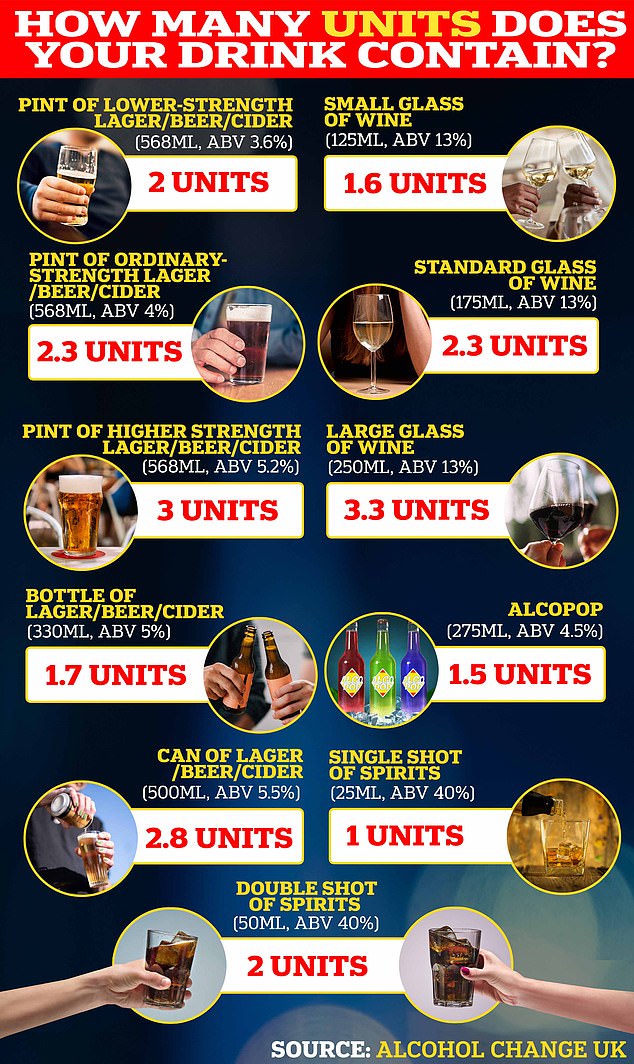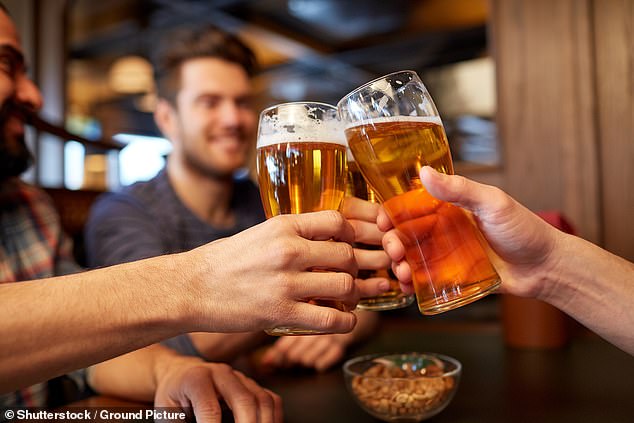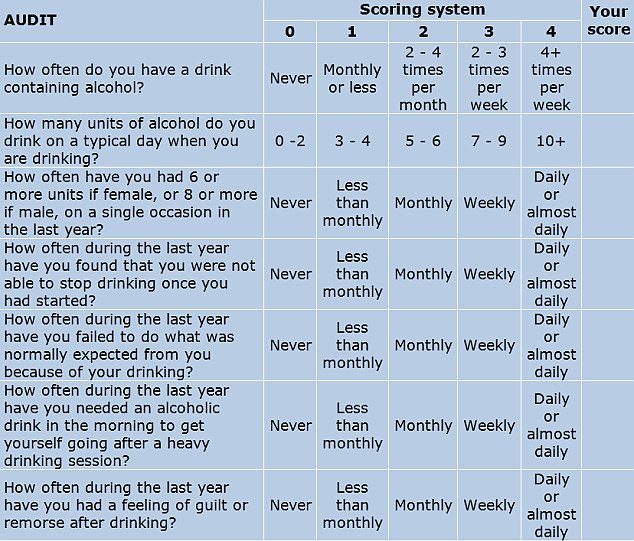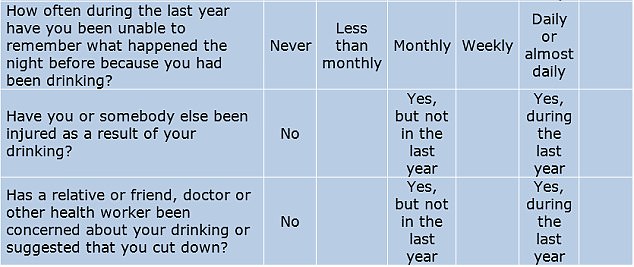An increasing number of Britons are giving up alcohol and more than a quarter of the country is now teetotal.
A whopping 27 per cent of UK adults are now non-drinkers, according to a survey of 2,000 adults.
That figure jumps to 36 percent for those under 25, also known as Generation Z, according to a survey of 2,000 adults.
Two years ago, 24 per cent of 18- to 24-year-olds were giving up alcohol, compared with just 13 per cent of Britons overall.
Around 16 per cent of Brits now identify as ‘flexi’ (switching between alcoholic and non-alcoholic drinks) and 57 per cent describe themselves as drinkers, advertising firm Red Brick Road found.
A whopping 27 per cent of UK adults don’t drink, with the figure rising to 36 per cent for those under 25, known as Generation Z, new data shows
The agency, which has worked with Heineken, Magners cider and Jägermeister, warned that the move away from the traditional British pint was a wake-up call for the alcohol industry and struggling pubs.
The heaviest drinkers are Generation Xers (born between 1965 and 1980), of whom 63 percent drink regularly.
They were followed by Baby Boomers (born between 1946 and 1964) with 62 percent.
Of Millennials, born between 1981 and 1996, 51 percent were regular drinkers.
Some Gen Z Britons do drink, but 72 per cent say they are “afraid” of alcoholic drinks and 32 per cent say they are drinking less alcohol compared to last year, the survey found.
Hangovers, emotional distress, the high cost of a night out, and unflattering drunk photos on social media are some of the biggest concerns those under 25 have about alcohol.
Many young people would also prefer to buy “trendy drinks”, the report reveals, with 37 per cent drinking drinks that are trending online.
Nearly half said their “online image” was in the background when drinking, and they often ordered “fancier” drinks such as cocktails or champagne – known as “liquid accessories”.
Nearly two-thirds agreed that health was important when choosing their drink, with Gen Z opting for low- or no-alcohol alternatives an average of 2.1 days per week – the highest of all age groups.

The NHS recommends that people drink no more than 14 “units” of alcohol (about six glasses of wine or pints of beer) a week. This itself has been watered down in recent decades in light of studies illustrating the health dangers of alcohol.
David Miller, chief executive of the London-based firm, which commissioned Opinium to survey 2,000 UK adults, said changing drinking habits presented the sector with a golden opportunity to cash in on non-alcoholic drinks.
He said: ‘We are seeing radical changes in the alcohol category with huge consequences for the alcohol industry.
‘But there are some incredibly positive opportunities for smart brands to align themselves with or take advantage of.
‘In particular, if brands want to reach Generation Z, who have a totally different relationship with alcohol to other generations.’
Two-fifths of Gen Z said cutting back on alcohol had improved their mental health.
And two-thirds said they visited a bar for pub gaming or quiz nights rather than going for a blootto.
Mr Miller added: ‘It is important for brands, bars and pubs to look at their marketing strategies to ensure they are attracting new, younger consumers whilst also expanding their existing market.
“There is a huge economic opportunity in catering to new behaviors rather than sticking to the same old tone.”
Sales of low and no-alcohol alcoholic beverages are expected to provide a £2.75bn boost to the UK economy during Euro 2024.
Tesco said it would sell 5.5 million bottles and cans during the tournament.
The report also warns that “the days of sharing fried prawns and pork rinds may be numbered”, with three in five younger consumers expecting healthy snacks such as olives, unsalted nuts or roasted chickpeas.



